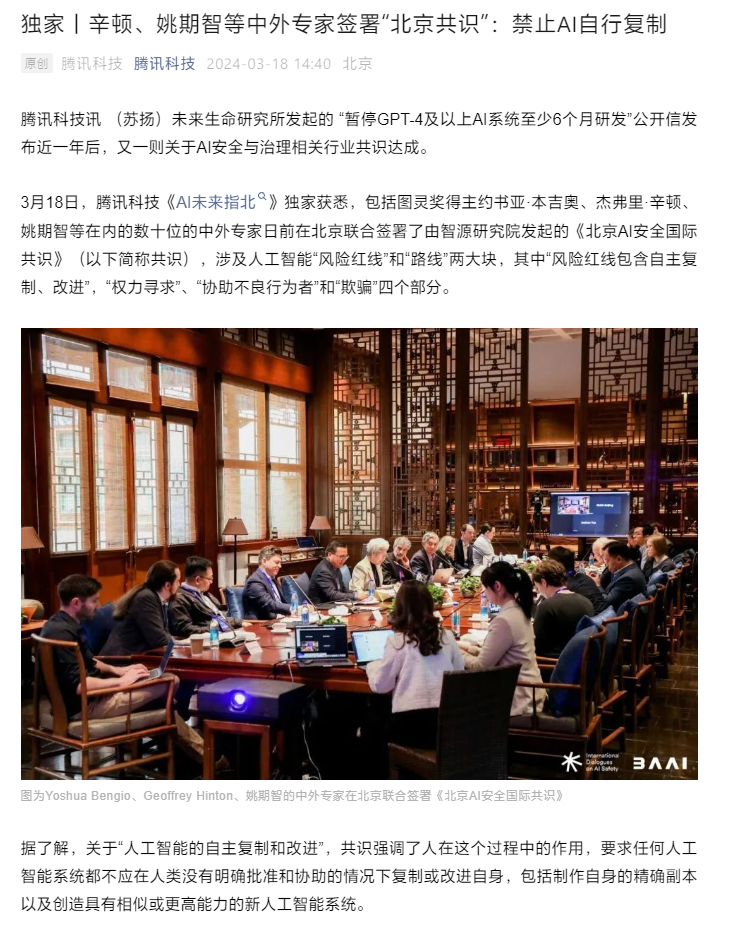

News on March 18, according to Tencent Technology reports, including Turing Award winners Joshua Bengio, Jeffrey Hinton, Yao Qizhi, etc. Dozens of Chinese and foreign experts recently jointly signed the "Beijing AI Security International Consensus" initiated by Zhiyuan Research Institute in Beijing, involving two major parts of artificial intelligence "risk red lines" and "route", among which " The "risk red line" includes four parts: "autonomous copying and improvement", "power seeking", "assisting bad actors" and "deception".

This site organizes the four parts of the content roughly as follows:
According to reports, this consensus calls on the industry to limit its access to extraordinary permissions through "jailbreaking" and "inducing developers" when conducting AI technology research and development, and limit the use of AI in the future. Copy and improve itself under supervision, putting a "tightening curse" on the development of AI.
The consensus also emphasized that the key to achieving the above red lines and not being crossed lies in the joint efforts of all parties in the industry to establish and improve governance mechanisms while continuously developing safer technologies. The development route of AI involves three aspects: "governance", "measurement and evaluation" and "technical cooperation". Specifically, the establishment of a governance mechanism is the basis for ensuring the correct direction of AI development, measurement and evaluation are the key to objectively evaluating the effects of AI technology application, and technical cooperation is an important guarantee for all parties to jointly promote the development of AI. The coordinated development of these aspects will help ensure the healthy development of AI technology while avoiding potential risks. Governance: It is recommended that AI models and training behaviors that exceed specific computing or capability thresholds be implemented immediately. Registration at the national level.
The above is the detailed content of Yao Qizhi and dozens of other Chinese and foreign experts signed the Beijing International Consensus on AI Security: AI is prohibited from replicating on its own. For more information, please follow other related articles on the PHP Chinese website!
 Application of artificial intelligence in life
Application of artificial intelligence in life
 What is the basic concept of artificial intelligence
What is the basic concept of artificial intelligence
 How to use Swagger
How to use Swagger
 How to open two WeChat accounts on Huawei mobile phone
How to open two WeChat accounts on Huawei mobile phone
 Dynamic link library initialization routine failed
Dynamic link library initialization routine failed
 pascal tutorial
pascal tutorial
 Common tools for software testing
Common tools for software testing
 How to get page elements using javascript
How to get page elements using javascript




